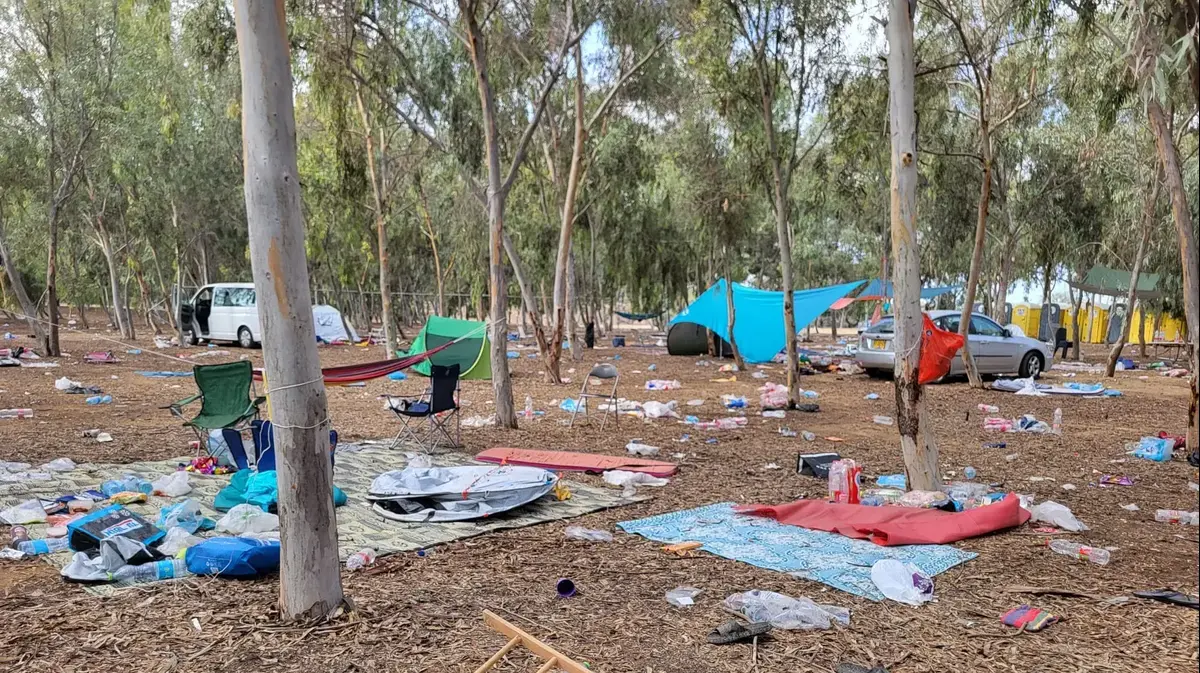It is the bellowing in the Białowieska forest.
The wild echo of the roar extends into one of the oldest forest stands in Europe, shared by Belarus and Poland.
He is heard by the guards of both countries and the almost 2,000 soldiers sent by Warsaw to shield the border against the hybrid attack launched by Aleksandr Lukashenko's regime.
And it terrifies those whom Brussels and the border countries have singled out as weapons in this battle without bombs: dozens of migrants and asylum seekers sent by Minsk to the northeastern borders of the EU, some trapped in no-man's-land.
More information
Brussels demands millionaire sanctions against Poland for violating the independence of the judges
Poland declares a state of emergency on the border with Belarus
In July, more than 4,000 people, mostly Iraqis, but also Congolese, Cameroonians, Syrians or Afghans, entered Lithuania irregularly from Belarus.
Vilnius and Brussels gathered evidence showing that Lukashenko's hand was behind the sudden migration flow, in retaliation for European sanctions following the fraudulent elections in the summer of 2020 and the crackdown on protests that followed, and for giving asylum to figures from the opposition.
When Lithuania sealed its border, the influx of migrants moved to Latvia, but especially to Poland, which this summer has given refuge to two Belarusian athletes.
In August 1,000 people who had entered irregularly were arrested on Polish soil. Every day, according to the border guard, they face dozens, sometimes hundreds of attempts and have prevented more than 3,000 arrivals. "It is comparable to the episode between Spain and Morocco," says Maciej Duszczyk, from the Faculty of Political Science and International Studies at the University of Warsaw. In the incident last May, between 8,000 and 10,000 migrants entered Ceuta from Morocco in two days. Duszczyk acknowledges that the dimension of the problem is different, but insists: "From a political point of view it is the same": using migrants to destabilize a country and influence migration policies.
"If we do not act effectively and consistently, a wave of illegal migrants will flood us," said Interior Minister Mariusz Kaminski on Monday before the Sejm, the Polish Parliament, to defend the state of emergency declared last week in 183 locations from the border for 30 days. The measure prohibits access and movements in the area to non-residents in a strip three kilometers wide from the border with Belarus. The Interior Minister assured that in the border area "everyone is very relieved by the presence of the Border Guard, the police and the Army."
Not everyone.
Olivia Hurley (43 years old), who lives in the village of Pogorzelge, does not understand that “the State puts all the human and material resources to prevent the passage in the zone instead of putting them to process asylum applications of a few migrants”.
Police controls, with agents arriving from other provinces, are constant.
"It is for their safety, there are many foreigners in the area," explain the police to the cars that stop to warn them not to approach the sealed area.
Join EL PAÍS now to follow all the news and read without limits
Subscribe here
As Hurley recounts, with his two daughters hovering on skateboards, “there are people who are very stressed; the older generations have memories of the war and the communist era with so much military presence ”. There are also the disadvantages such as not being able to approach larger towns to do the shopping. It is only allowed to cross to go to the doctor, the church, or the Town Hall.
The Executive is "overacting in the face of a very small number of irregular entries," says Deputy Franciszek Sterczewski, of the Civic Coalition, a platform of opposition parties in which the former president of the European Council, Donald Tusk, has a majority. "The Government rejects the help of Frontex because it assures that it is strong enough to defend the border, but at the same time, they say that the crisis is such that they need an instrument such as the state of emergency," criticizes the politician.
Harassed by internal problems - in August the coalition in power broke down and the Government lost the majority in the Sejm - and external problems - this week the EU has demanded millionaire sanctions for violating judicial independence - the crisis at the border has come in handy for the Polish Executive. His popularity has risen. Faced with a threatening situation, the people support the governments ”, explains Duszczyk. "The deployment of Russian and Belarusian soldiers and tanks near the border for the Zapad 2021 military exercises facilitates that narrative," he says.
But in a hybrid conflict all kinds of non-military tactics are used, like propaganda.
That battle, the political scientist believes, is being won by Lukashenko.
The case of 32 Afghans camped under the rain in a no-man's-land between Poland and Belarus, who the Polish government does not allow to enter to request asylum, has been widely reported by the Western press, but also by the media of the Minsk regime.
For two weeks, activists, Polish and international humanitarian organizations, such as the UN refugee agency (UNHCR), and a deputy such as Sterczewski, unsuccessfully demanded access to humanitarian and legal aid.
Lukashenko "is showing this treatment in the media," according to Duszczyk, with the message: "If you want to ask for asylum in Poland, look at how they treat refugees."
The resistance
Following the declaration of the state of emergency, activists, NGOs and the press left the front line. However, a small resistance remained in the rear in Teremiski, a village a few kilometers from the border, equipped with mobiles in which they communicate through secure applications such as Signal and cars with which they explore the forest and the limits of the restricted area.
From their headquarters in a wooden house where an environmental organization has invited them to settle, Alejksandra Chrzanowska, 41, and a variable handful of workers and volunteers from 10 organizations, have two lines of action. They inform residents of the region door-to-door on how to help if migrants are found on their lands. And when they receive notices from groups lost in the forest, outside the three-kilometer strip, they try to get there before the guards to give them legal help. In some cases they have managed to have them transferred to reception centers, but in others, they have only been able to document hot returns.
Chrzanowska's eyes, three-quarters blue and one-quarter brown, and her half-undone blonde ponytail are exhausted this week.
The integration counselor of the SIP association carries the burden of knowing that a group of nine Congolese and an Eritrean who stepped on Polish soil are somewhere in the forest, listening to the roar of deer on frosty nights.
The last time he heard from them they were crying out for help, pushed by Belarusian and Polish soldiers into no-man's-land.
An extreme measure
The Government of Poland, led by the far-right Law and Justice party (PiS, for its Polish acronym), is part of the European hard wing on immigration and refugee policies, which usually affect southern countries as a gateway to the EU . For the first time, it has been exposed to border pressure, which despite being still manageable in quantitative terms, has faced its heaviest weapon: the state of emergency, which has not been used since communist times.
"It's too much. In the Polish Constitution, it is the last border, which must not be crossed, "says political scientist Maciej Duszczyk, who is in favor of securing the border and building a fence, but recalls that not even in the worst moments of the pandemic of covid-19, when there were thousands of deaths, this tool was used. "They chose the state of emergency because it makes it impossible for humanitarian organizations and the press to access the border area and document the situation," says Justyna Kajta, a researcher at the SWPS University of Social Sciences and Humanities.
The Polish Interior Ministry refers to the speeches before Parliament last Monday of the Prime Minister and the Minister of the Interior as a response to the requests for information from this newspaper.
Before criticism from the opposition, the head of government defended the measure in response to "an attempt to violate the integrity of the Polish state" and "the sovereignty of the borders."
Mateusz Morawiecki also mentioned as a threat Zapad 2021 (West 2021), the massive military exercises that Moscow and Minsk are doing on their western borders.
Follow all the international information on
and
, or in
our weekly newsletter
.






